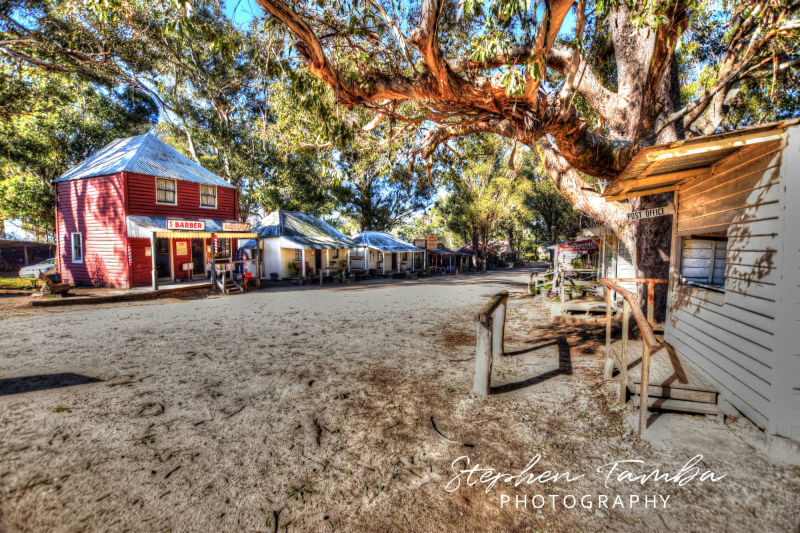

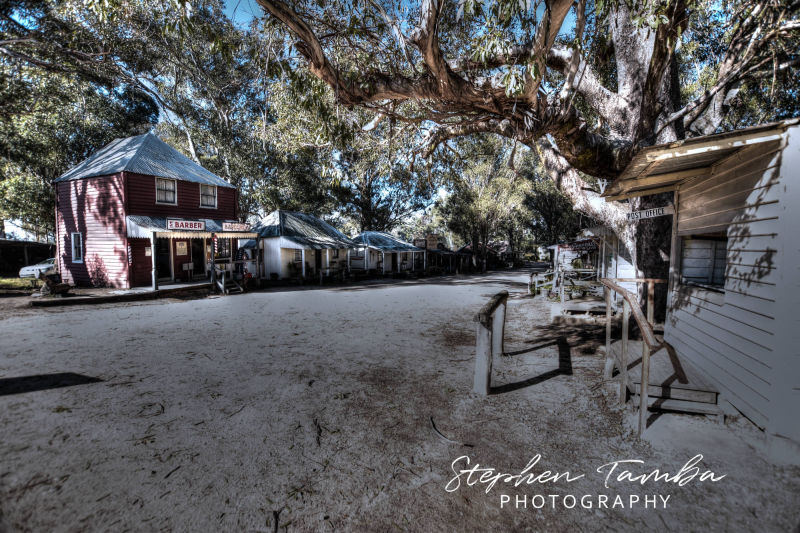
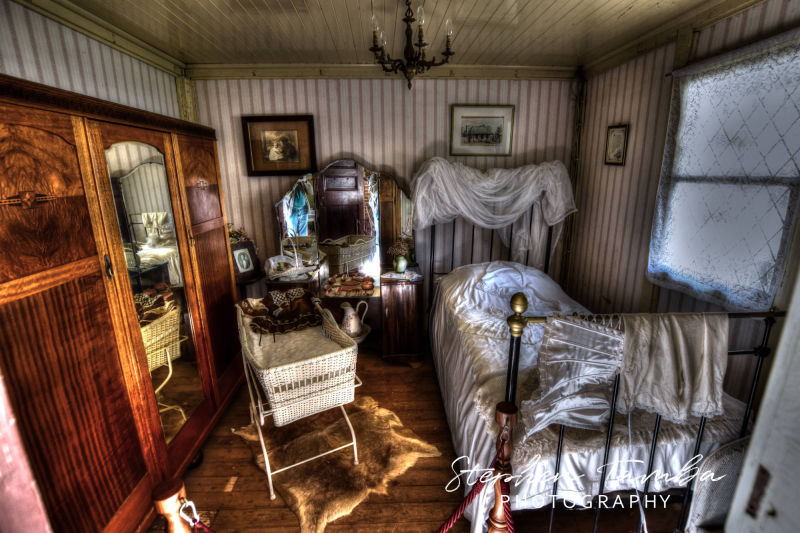
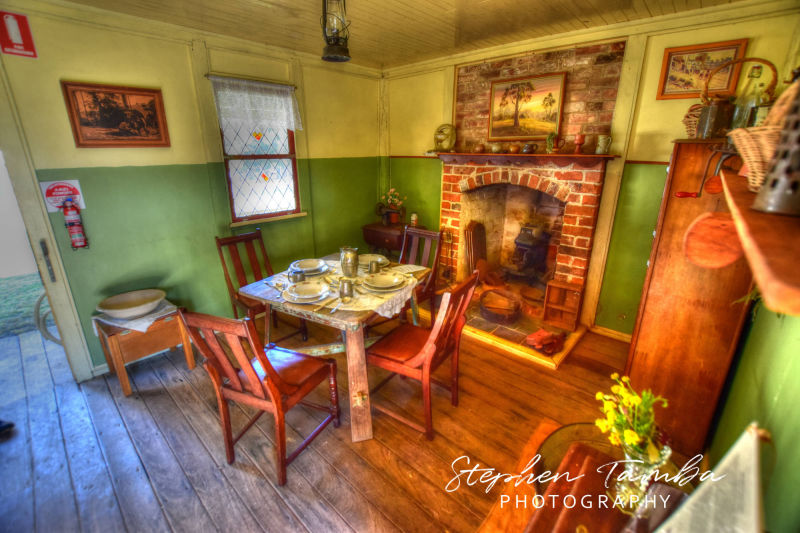
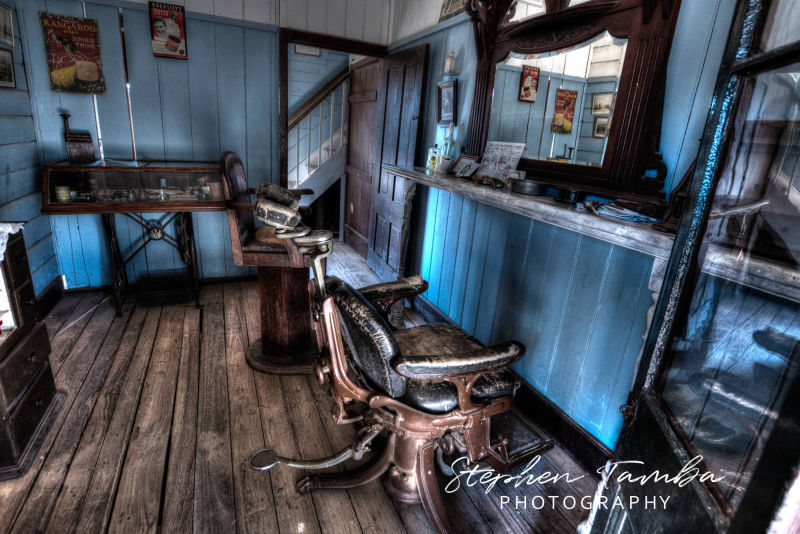
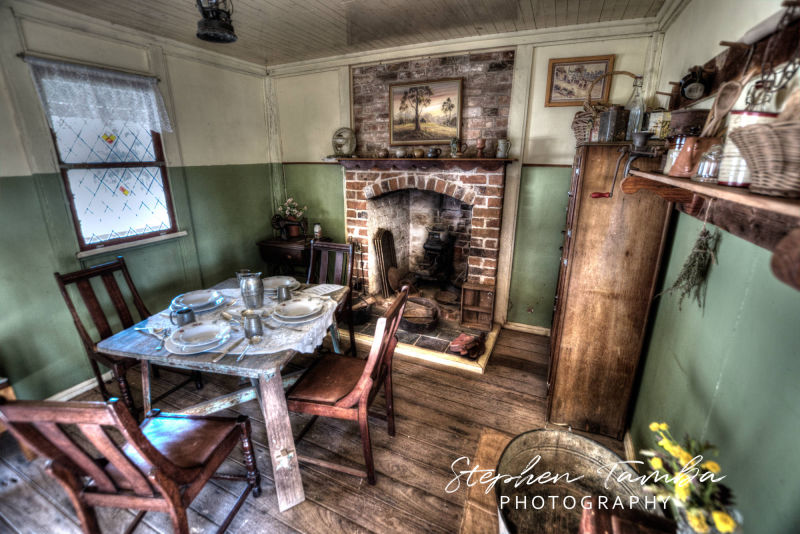


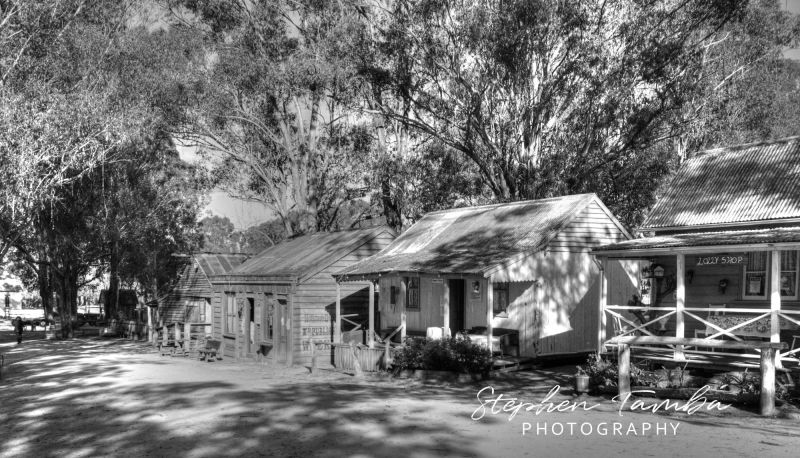

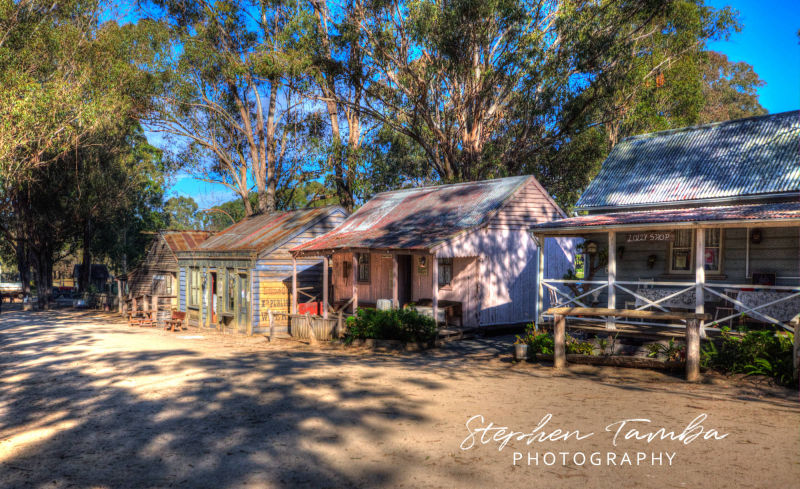
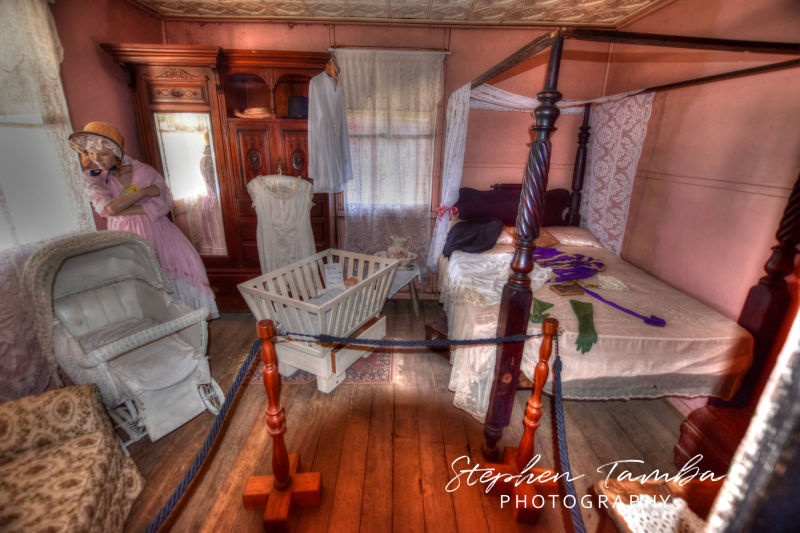

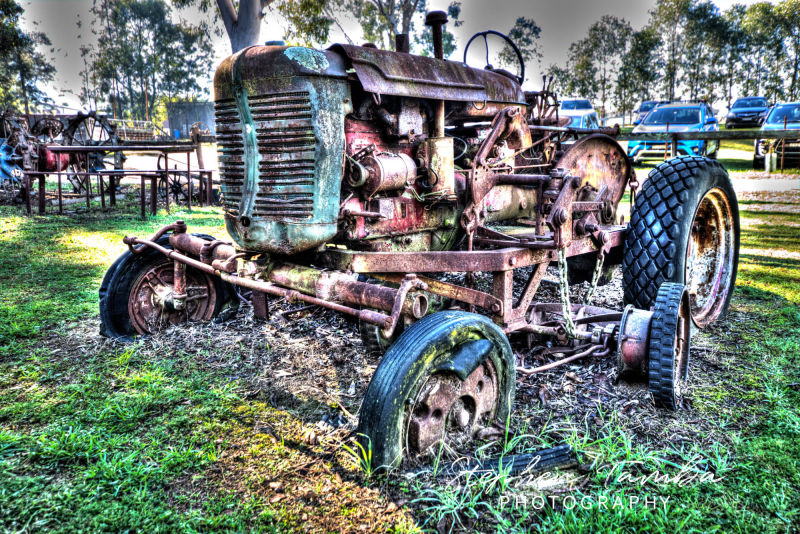
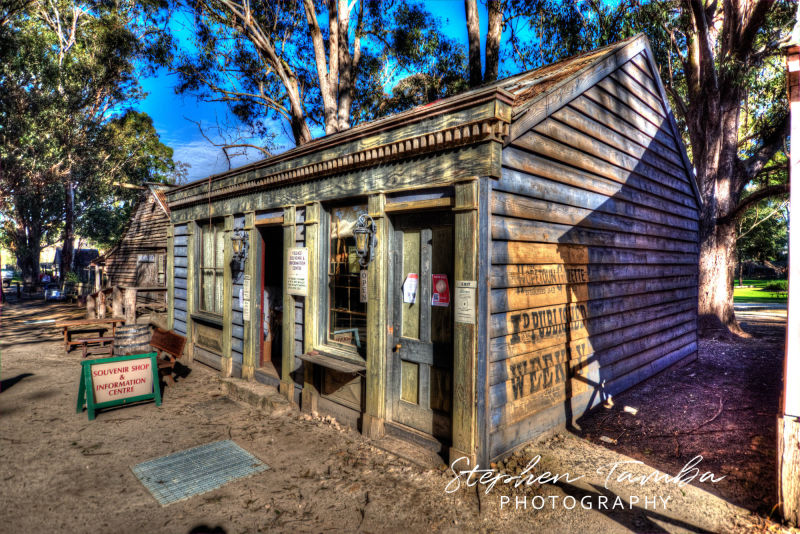

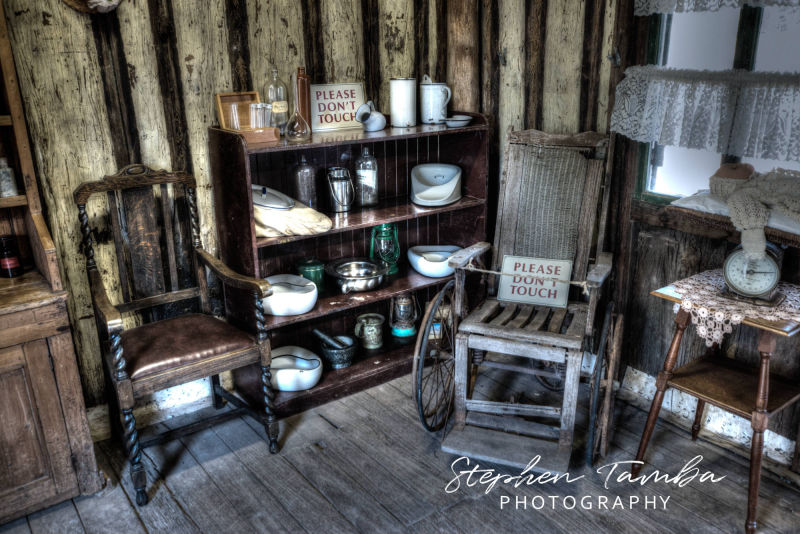

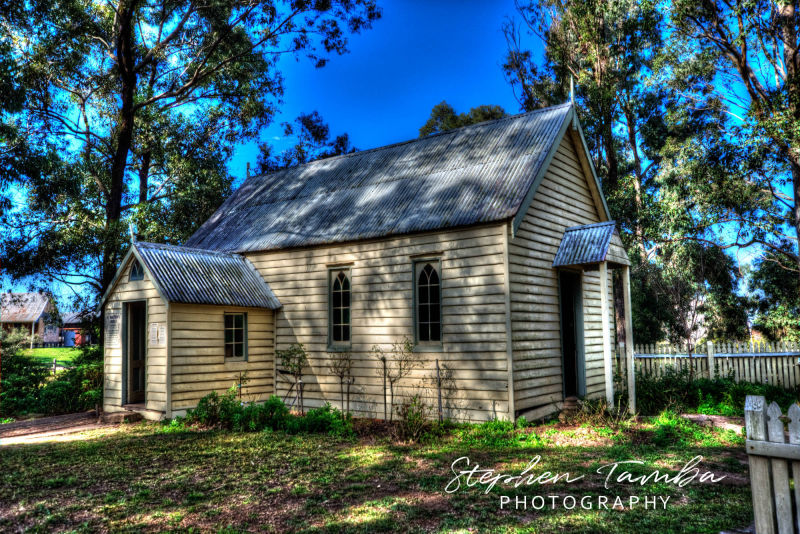
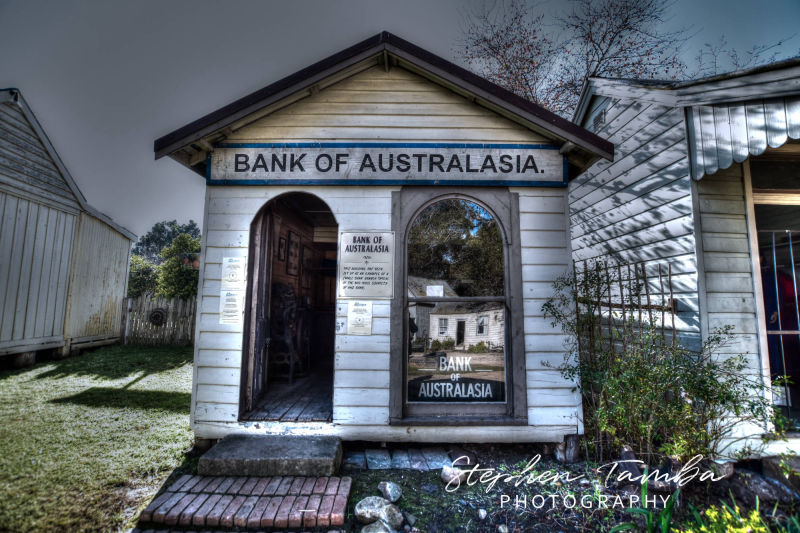
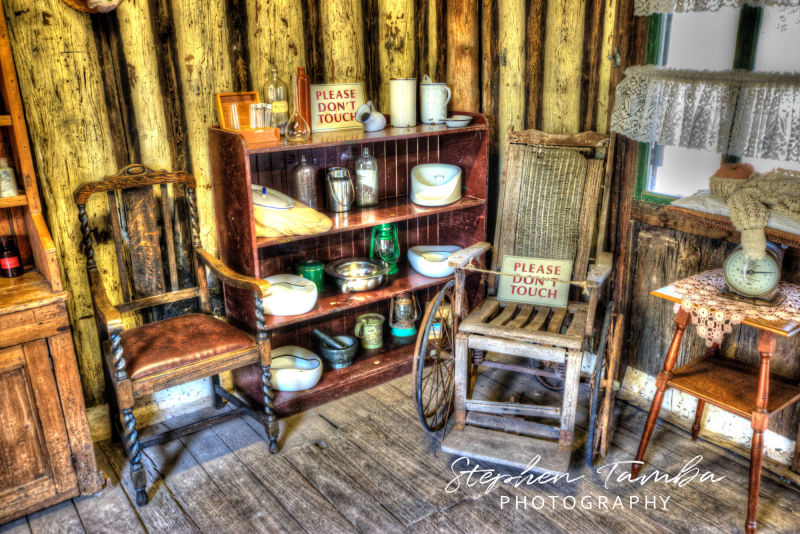
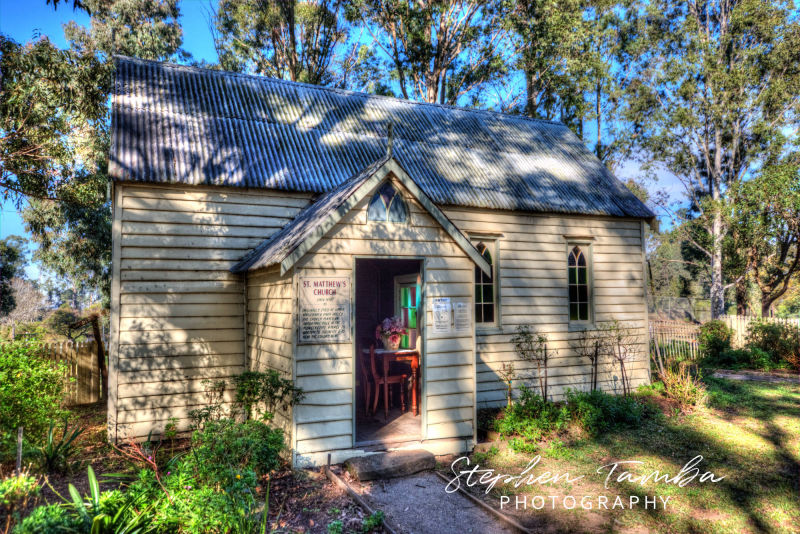
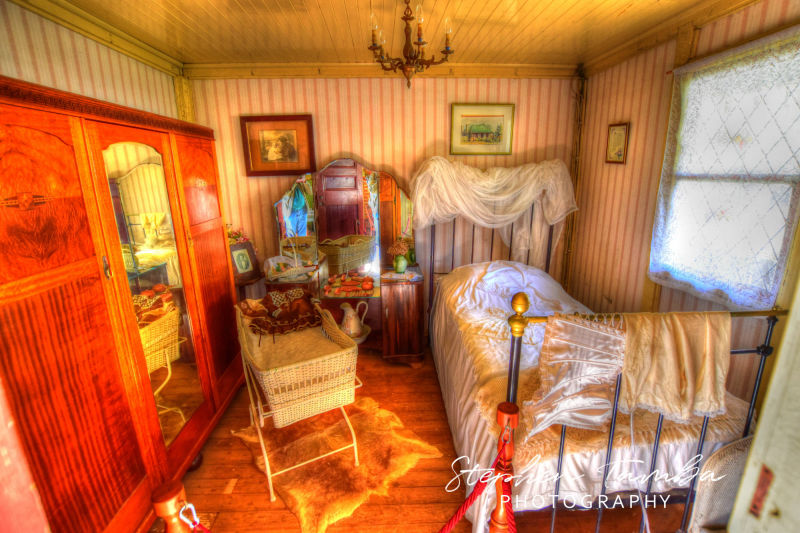
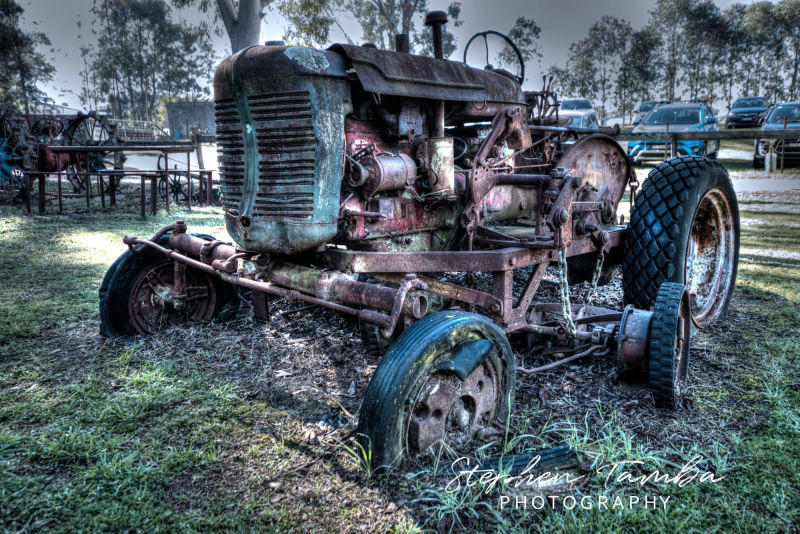
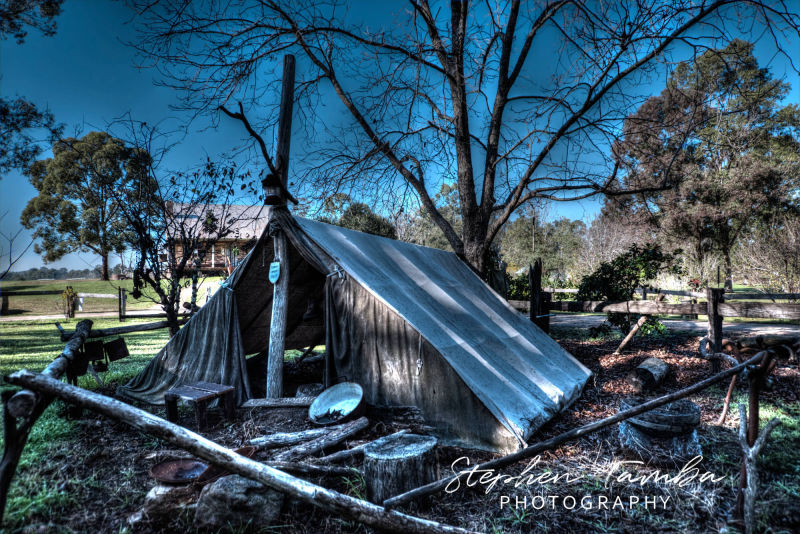
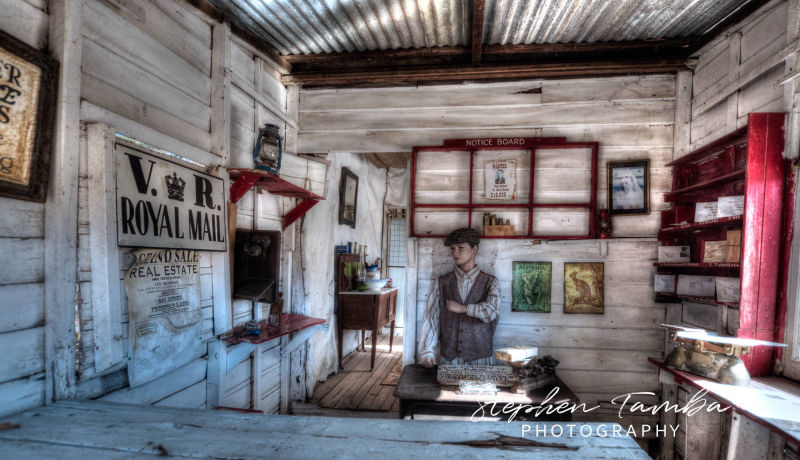
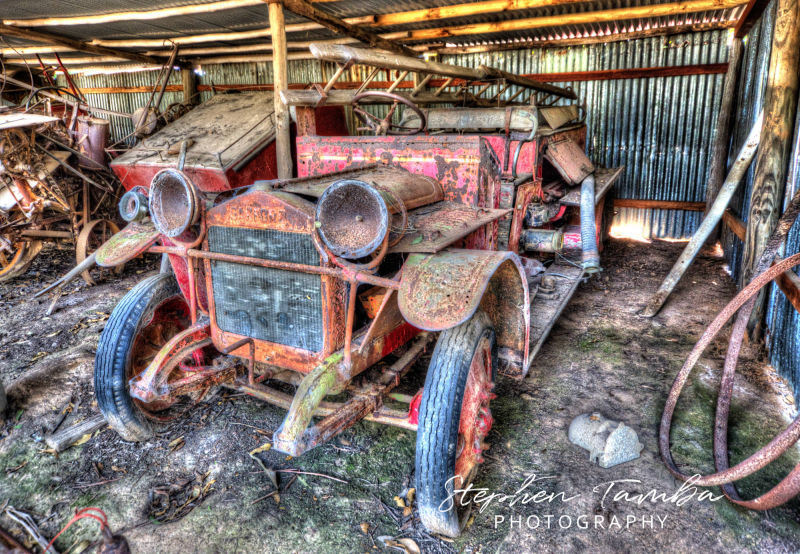
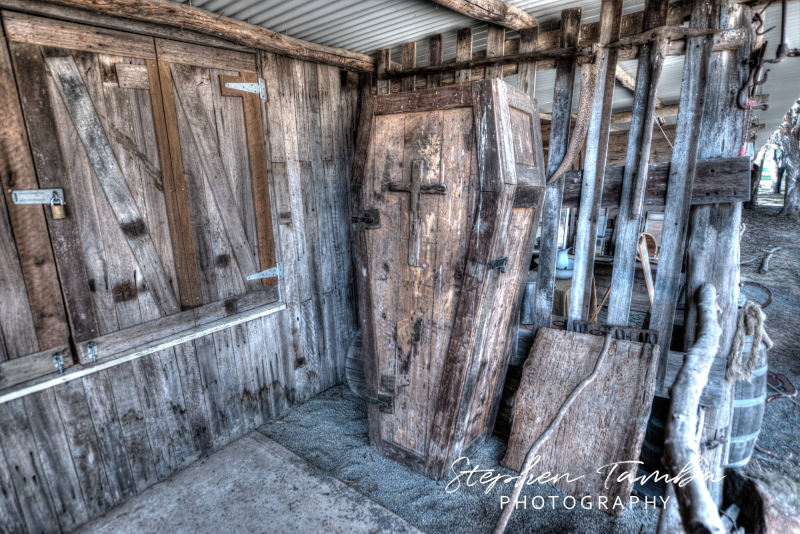

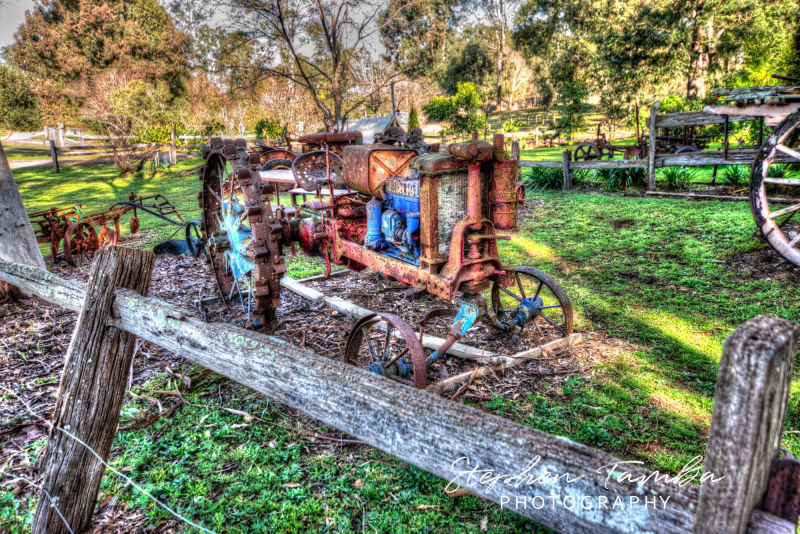
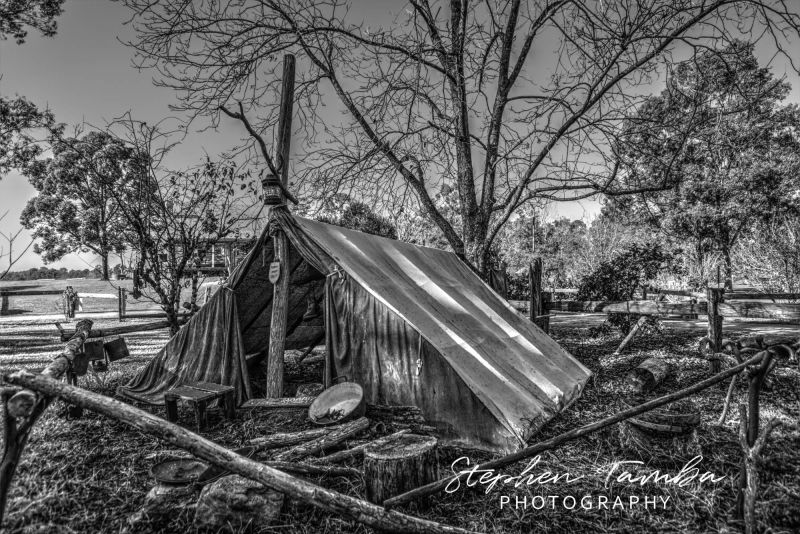

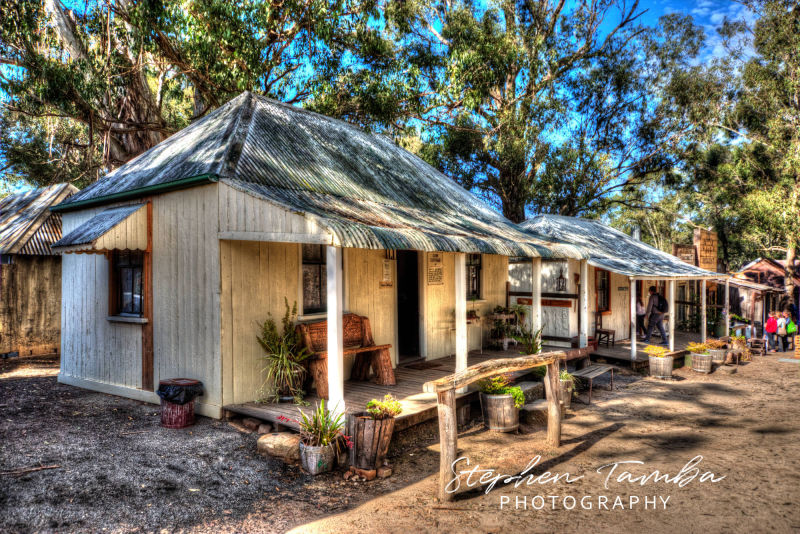
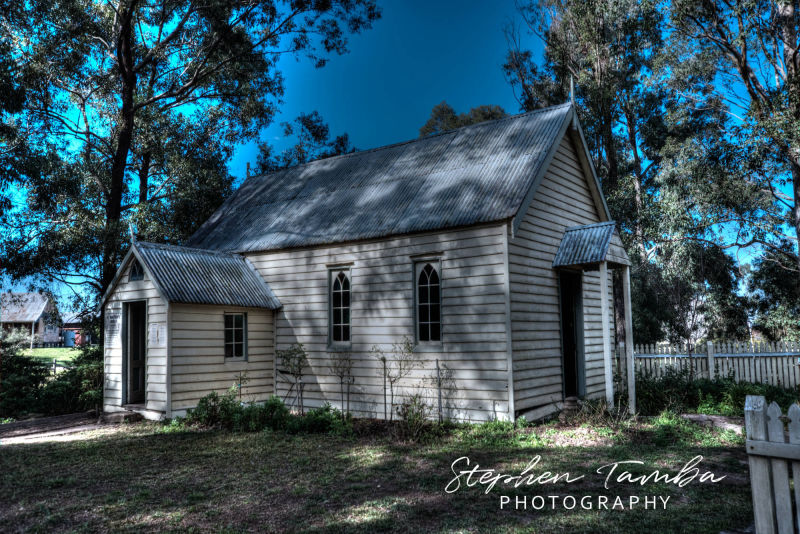
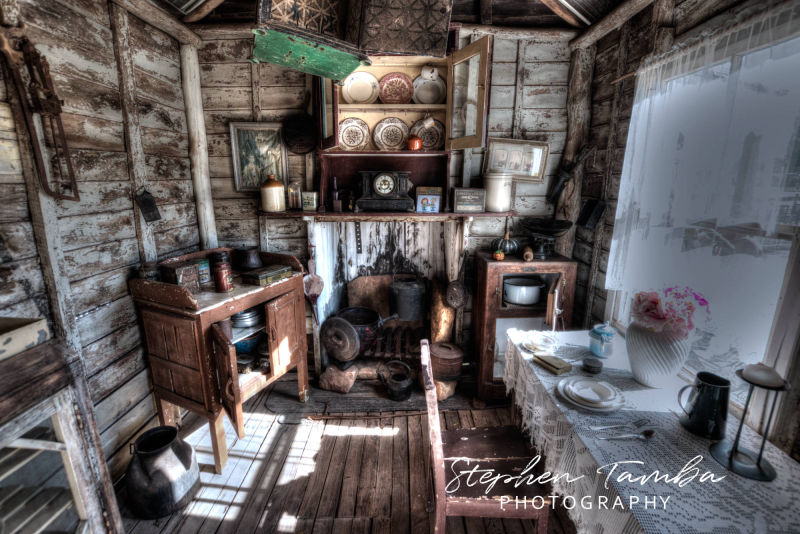
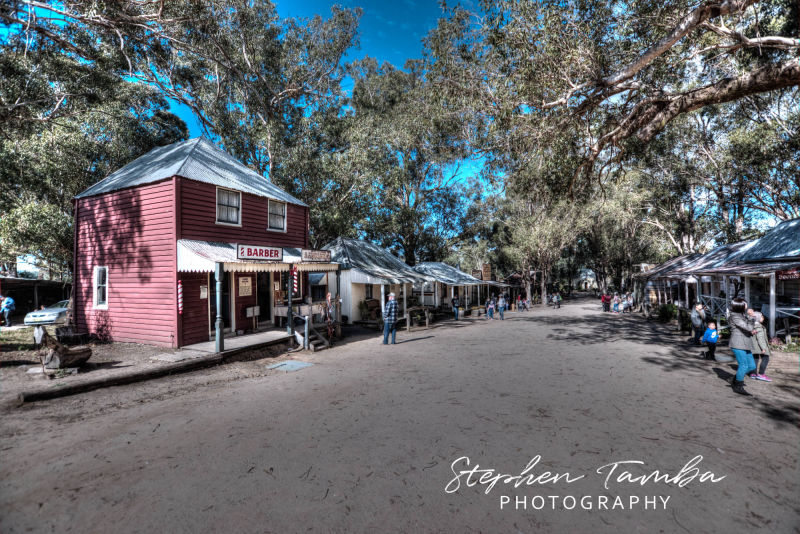
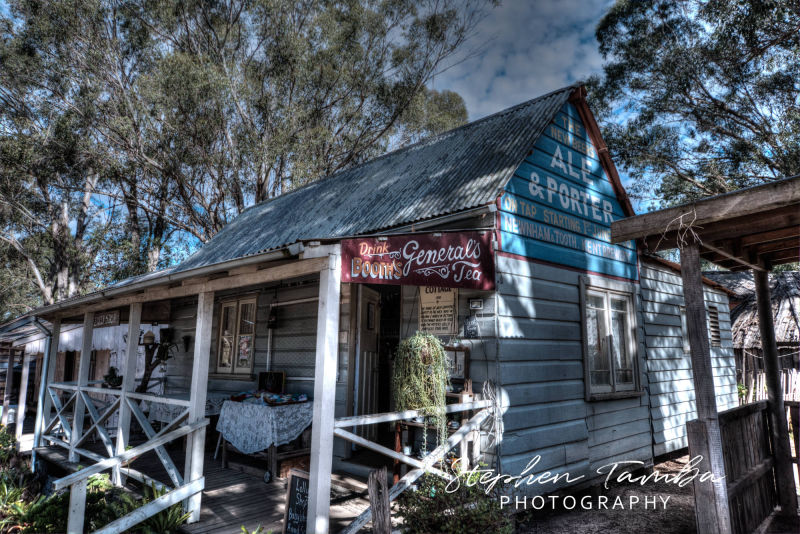
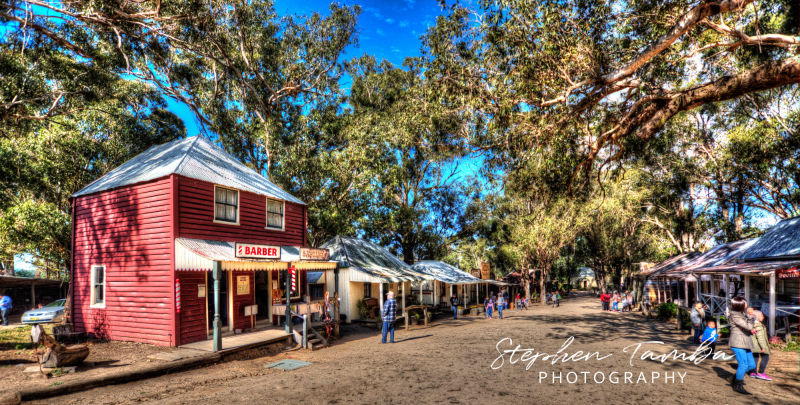
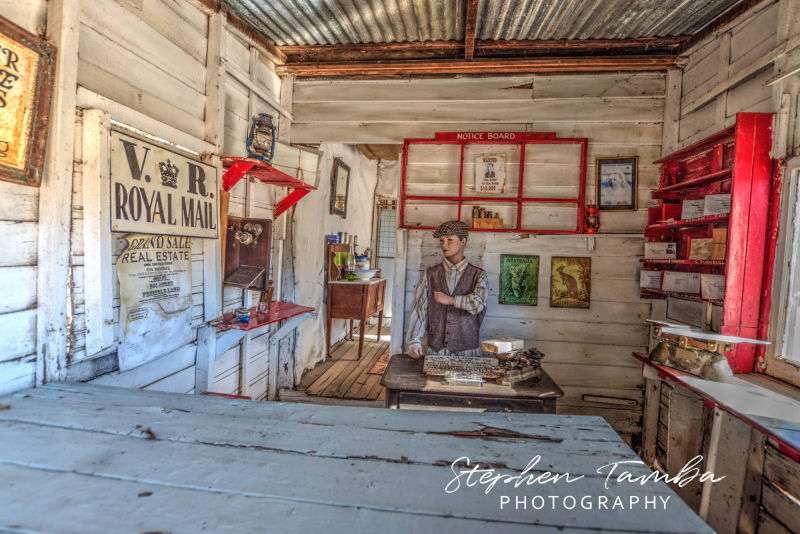
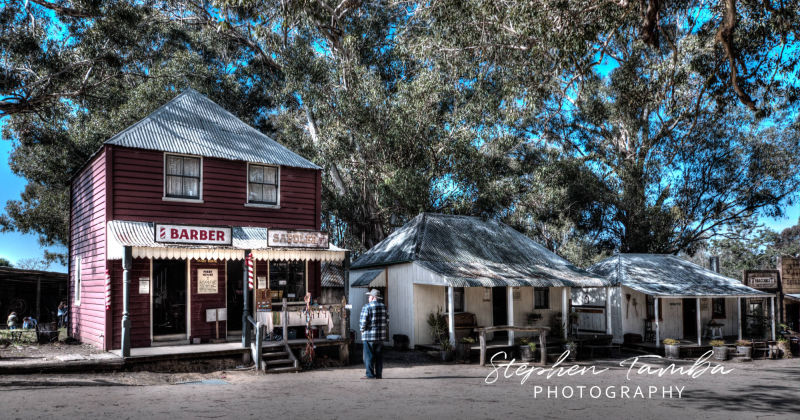



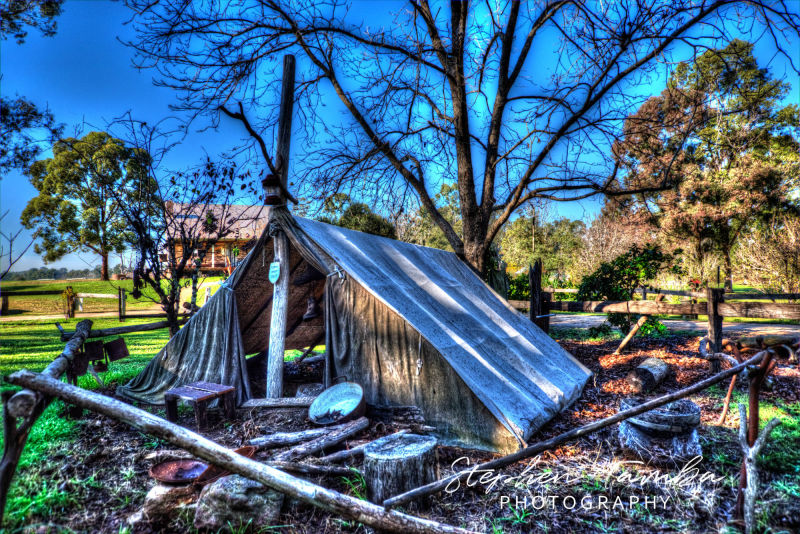
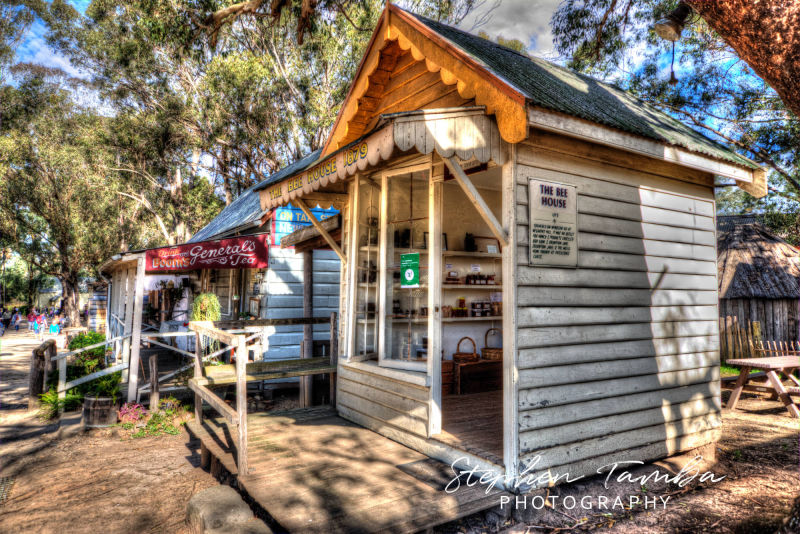


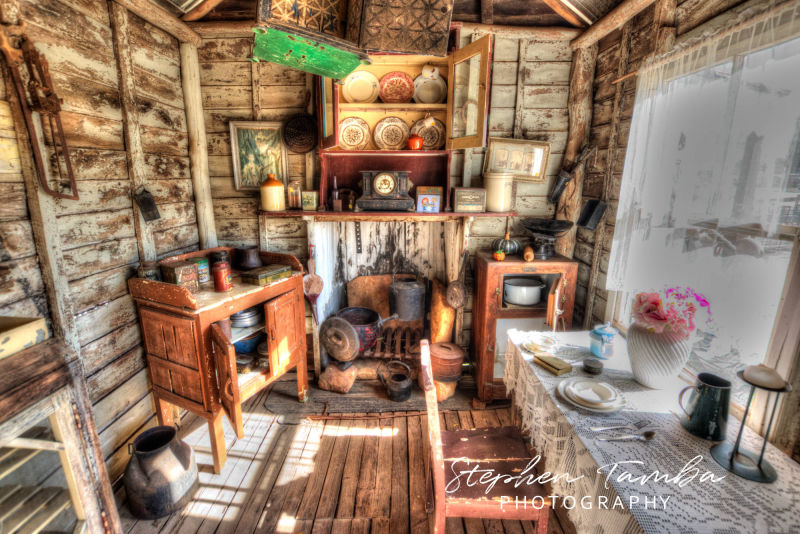
Australiana Pioneer Village is a heritage-listed open-air museum at Rose Street, Wilberforce, City of Hawkesbury, New South Wales, Australia. It was built from 1969 to 1970. The property is owned by Hawkesbury City Council.
The land on which Australiana Pioneer Village is situated was farmland recognised as essential to the survival of colonial New South Wales, being one of the earliest grants made in Australia. Located in the District of Mulgrave Place, the third mainland settlement of the colony, the 30 acre grant was registered to William MacKay on 1 May 1797, but by 1809 at least part of it was in the possession of Joshua Rose. John Rose, the final Rose descendant to live on the rich farmland after continuous occupation by the family for over 150 years, died only in 1961.
Upon John Rose's death, Dugald Andrew (Bill) McLachlan, a friend of Rose and an industrial chemist, bought the property. A man who relished challenges, whether competing in gruelling Australian car trials or being part of the 1940s group who pioneered water-skiing, Bill McLachlan fashioned a vision: to save part of the Hawkesbury's historical legacy, and to demonstrate its pioneering accomplishments.
In an era before New South Wales heritage legislation such an enterprise had to be carried out privately, and resiting endangered buildings was one of few options open. It was a very natural option in the Hawkesbury district where there was, and still is, a long tradition of adaptation of buildings, both public and private, often involving reuse of materials or transfer complete to another site. By 1967 McLachlan had begun to plan a "Pioneer Village" of two streets, a water based leisure centre on his 250-metre water frontage to the Hawkesbury River and picnic facilities. Ready response from the owners of many buildings endangered in the district, meant that from the end of 1969 and throughout 1970 he engaged Silvio Biancotti of Kurrajong to bring by low loader to his "Village" twelve of the resited buildings together with the glasshouse.
Many local families helped with the removals, which were all undertaken keeping the buildings structurally intact, and with their relocation on their planned sites. Brian Bushell of Wilberforce brought the small Bee House shop from McGraths Hill and others transported the Riverstone General Store and Jack Greentree's garage which became the "Bank of Australasia". On 29 November 1970 the Village was officially declared open by the Eric Willis, Minister for Education.
Bill McLachlan's early death at the age of 54 years in 1971, and the interment of his ashes near the church on the Village site, rallied continued support.
The last three buildings to be resited were the Riverstone Police Station (1972–73), Mangold Cottage (1985) and Aiken Hut (1984–85).
Source: https://en.wikipedia.org/wiki/Australiana_Pioneer_Village
















































